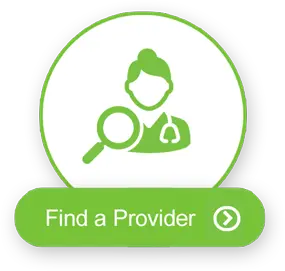
While treatment options will vary, a typical treatment plan could include a combination of talk therapy, medications like antidepressants, or other options.
If this is the first time you are starting an antidepressant, it can feel a bit like stepping into the unknown. If you’ve been prescribed an antidepressant for the first time, you may feel optimistic that your new medication could relieve your depressive symptoms. You may also question how it works or how it could affect your lifestyle.
You’ll want to discuss with your doctor or nurse practitioner what side effects you may experience, how long it could take to start experiencing symptom relief, and when you should reconnect with your healthcare provider to determine if the medication is working for you.
While each case is unique, there are some common questions about starting an antidepressant treatment plan you may want to consider.
1. Do Antidepressants Become Less Effective Over Time?

However, if you suspect that your antidepressant is not working as well as it once did, it is important to not assume this is solely due to the antidepressant. Worsening depression, underlying health conditions, new medications, or the biological effects of age could all impact your antidepressant’s performance, writes the Mayo Clinic.
2. Can I Take other Medications While on Antidepressants?
Yes, but talk to your doctor about potential drug-drug interactions. Complications could occur if you are taking other medications that interact with your antidepressant. These are called drug-drug interactions. One potential complication could be a condition called serotonin syndrome.
“Serotonin syndrome may occur if you take an antidepressant with a migraine medication. It may also occur if you take an antidepressant with an opioid pain medication,” according to the Mayo Clinic.
Though your body naturally produces serotonin to help with brain function, serotonin syndrome is a condition where there is too much serotonin in the body, causing “symptoms that can range from mild (shivering and diarrhea) to severe (muscle rigidity, fever and seizures).”
“If you suspect you might have serotonin syndrome after starting a new drug or increasing the dose of a drug you’re already taking, call your doctor right away or go to the emergency room. If you have severe or rapidly worsening symptoms, seek emergency treatment immediately,” according to the Mayo Clinic.
3. Can Pregnant Women Use Antidepressants?

Research by the Centers for Disease Control and Prevention (CDC) suggests some antidepressant types are linked to an increased chance of specific birth defects. “Researchers found that some birth defects occur about two or three times more frequently among babies born to women who took certain types of SSRI medications early in pregnancy,” writes the CDC.
4. Can I Drink Alcohol while on Antidepressants?

Mayo Clinic warns mixing alcohol and antidepressants could worsen side effects, cause a dangerous spike in blood pressure when taking MAOIs, further impair coordination and motor skills, or compound the effects of drowsiness typical with some antidepressants.
It is best to talk to your doctor about your drinking habits before you are prescribed an antidepressant. Further, the Mayo Clinic suggests not stopping your antidepressant just so you can drink as “most antidepressants require taking a consistent, daily dose to maintain a constant level in your system and work as intended. Stopping and starting your medications can make your depression worse.”
5. Is it Possible to Overdose on Antidepressants?
Yes, it’s possible to overdose on any type of antidepressant, especially if it’s taken with other drugs or medications,” according to Healthline.

If you suspect an antidepressant overdose, call the National Capital Poison Center (1.800.222.1222) or seek immediate emergency medical help:
“You shouldn’t wait until your symptoms get more severe. Certain types of antidepressants, especially MAOIs, may not cause severe symptoms for up to 24 hours after overdosing… If symptoms become severe, call your local emergency services. Try to stay calm and keep your body cool while you wait for emergency personnel to arrive.”
In the event of an overdose, patients may receive activated charcoal to help absorb the medication, IV fluids, sedatives, or stomach pumping to remove excess medication, according to Healthline.
Talking to Your Healthcare Provider About Antidepressants
Because it can take time to experience the full benefit of antidepressants, you should talk to your doctor before changing your medication.
According to Healthline, abruptly stopping your antidepressant dosage could lead to antidepressant discontinuation syndrome, also known as withdrawal, or set back your depression treatment plan. [Read more about antidepressant withdrawal on our blog]

- Be prepared: Take along any information the doctor or staff may need to see, like names and contact information of your past/other clinicians. Bring a list of past or current medications or dietary supplements. Write down a list of questions you want to ask during your appointment.
- Be open: Share how other forms of treatment worked for you or fell short. By detailing your symptoms and experiences, your doctor can get a better sense of your clinical profile to help determine your treatment plan.
- Discuss next steps: Be sure you understand what the next steps are, including whether you should schedule a follow-up appointment to talk about your medication. At the follow-up appointment, you should talk with your doctor if you are not experiencing symptom relief and/or if you are experiencing unpleasant side effects. Consider asking if you are a good candidate for pharmacogenomic testing, which can give your doctor information about how your genes may impact how you metabolize or respond to medications commonly prescribed to treat depression, anxiety, ADHD and other psychiatric conditions.
If you aren’t sure where to start, please download the GeneSight Psychotropic Discussion Guide to help you prepare for your next conversation with your doctor.
Our articles are for informational purposes only and are reviewed by our Medical Information team, which includes PharmDs, MDs, and PhDs. Do not make any changes to your current medications or dosing without consulting your healthcare provider.
The GeneSight test must be ordered by and used only in consultation with a healthcare provider who can prescribe medications. As with all genetic tests, the GeneSight test results have limitations and do not constitute medical advice. The test results are designed to be just one part of a larger, complete patient assessment, which would include proper diagnosis and consideration of your medical history, other medications you may be taking, your family history, and other factors.
If you are a healthcare provider and interested in learning more about the GeneSight test, please contact us at 855.891.9415. If you are a patient, please talk with your doctor to see if the GeneSight test may be helpful.






